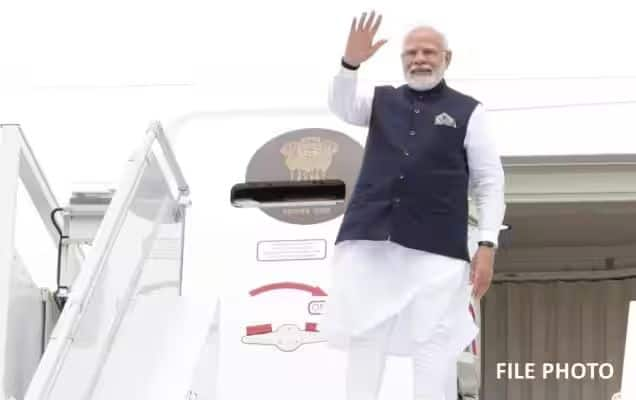The G-7 Summit will be held in Italy from June 13-15, and the Ukraine peace summit will take place in Switzerland from June 15-16….reports Asian Lite News
India will take part in all major summits that advance global peace, security, and development, Prime Minister Narendra Modi announced, referring to invitations to the G-7 meeting and the Ukraine peace summit next month.
In an interview with PTI, Modi emphasized that India will “resonate the voice of the Global South” at these summits to shape global discourse and promote human-centric development and a prosperous, peaceful world.
“The level of participation will depend on timing, logistics, and parallel commitments,” Modi responded when asked about his attendance at the two multilateral gatherings.
The G-7 Summit will be held in Italy from June 13-15, and the Ukraine peace summit will take place in Switzerland from June 15-16.
Modi stated that the invitations highlight India’s importance and contribution to international affairs, reflecting its philosophy of Vasudhaiva Kutumbakam (the world is one family).
“India will be participating in all important summits that promote the agenda of global peace, security, and development,” Modi reiterated.
Economic priorities and strategic interests
As India sees robust growth, sweeping reforms, radically improved governance, fiscal discipline, infrastructure progress, rapid digitisation and focus on developing skills, we must recognise that our economic priorities will have to align with our strategic interests, External Affairs Minister (EAM) S. Jaishankar said.
Addressing the ‘CII Annual Business Summit 2024’ in the capital, EAM Jaishankar said the embassies will continue to extend their fullest support to the economic and employment interests abroad.
The business delegations will continue to accompany him on travels abroad and we “will facilitate business-to-business-to-government (B2B2G) events”.
“Our export promotion efforts, already yielding results, will intensify across the world. The use of credit lines and grants to familiarise the world with our products and capabilities will also deepen,” the minister told the gathering.
EAM Jaishankar said there is the larger branding endeavour of the attractions of “today’s India” that will make a case to the world to the benefits of the partnership.
However, the current times call for something more than business as usual.
“Because trust and reliability have become so important, foreign policy is today charged with creating the comfort levels between governments to make that happen. This is especially so in terms of de-risking supply sources and enhancing collaboration in sensitive, critical and emerging technologies,” the minister emphasised.
EAM Jaishankar mentioned the iCET dialogue with the US, which is a collaborative framework established by India and the US to enhance cooperation in critical and emerging technologies.
“We must recognise that our economic priorities will have to align with our strategic interests, whether we are speaking of market access, investments, technologies, or even education and tourism. This will be even more so as ‘Make in India’ gathers more steam in domains like defence, semiconductors and digital,” the minister noted.
For a long time, India looked at Russia from a political or security perspective. As that country turns eastwards, fresh economic opportunities are presenting themselves.
“The spike in our trade and the new areas of cooperation should not be regarded as a temporary phenomenon. Many other recent partnerships also offer such possibilities, such as those with Australia and with Latin America, in addition to established ones like Indonesia, Africa and West Asia,” the minister elaborated.
From an Indian perspective, said EAM Jaishankar, the time has come to start re-engineering the logistical map of the world.
“Some steps have already been taken, such as the International North-South Transport Corridor that also involves the Chabahar port. A more ambitious project is on the anvil in the form of the India-Middle East-Europe Economic Corridor (IMEC), which was agreed to during the G20 Summit last September,” the minister further informed.
ALSO READ: India Mourns Iran President Raisi’s Death

